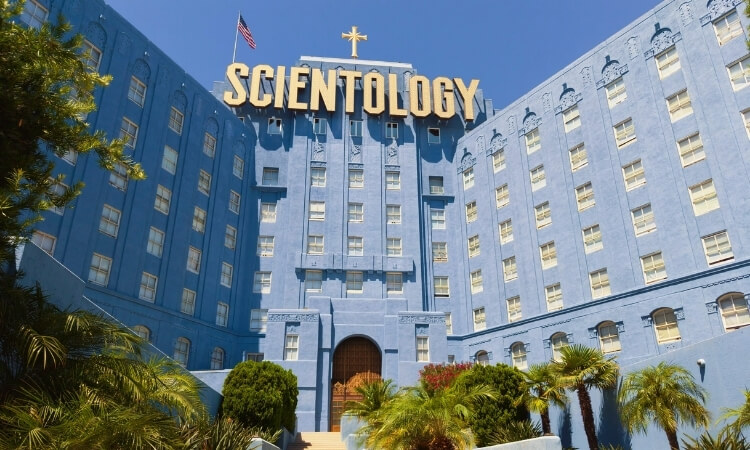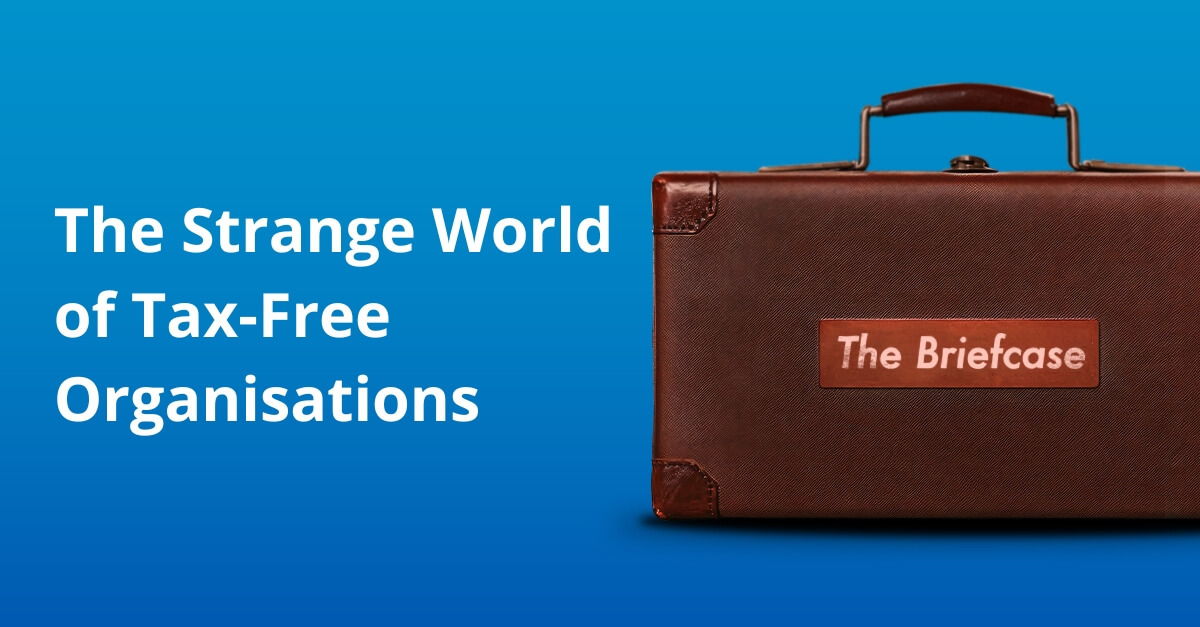There’s nothing quite as divine as tax exemption. Whether it’s religion or royalty, some organisations float above earthly matters – earthly matters such as funding public services – and remain blessedly untouched by the long arm of the taxman.
So, let’s crack open the good book on the sanctified world of tax-free status. We’ll begin with one of the more recent chapters.
🛸 A Clear decision, or a Miscavige of justice?
We’re talking tax, and it’s impossible to miss out this story – a little tale concerning the universally beloved Church of Scientology.
Founded in the 1950s by science fiction writer L. Ron Hubbard, Scientology spent decades fighting for, among other things, tax-exempt status in the United States. In fact, tax exemption has been cited as a big reason Hubbard switched from referring to the practice as a religion, rather than a science.
But the tax authority of America, the IRS, wasn’t taking the bait. That is, until 1993, after an extraordinary legal war involving over 2,000 lawsuits, leaked documents, and allegations of harassment, the IRS relented. Scientology became officially recognised as a religion, and with that came the coveted tax-exempt status.
It was such a large part of the organisation’s aims that insiders reportedly referred to the win as "the war” being over.
The decision faced massive criticism at the time, and still does today. It also had some unintended consequences.
In 2019, the Satanic Temple used the same legal framework to gain IRS-recognised religious status in the U.S. This is despite the Satanic Temple being formed to meet "all the Bush administration's criteria for receiving funds, but was repugnant to them". So, even though they’re essentially a satirical organisation, they’re also a tax-exempt church – complete with after-school programmes and "unbaptisms”.

🏰 Monkey business
The original tax-free institutions didn’t preach Dianetics, but they did preach.
In medieval England, the Pope wasn’t just the number one customer for Vanish Oxi Action, he was one of the biggest landlords in the country, running farms, collecting rents, and brewing delicious tonic wines – all without paying a penny to the king.
By the early 1500s, the Catholic Church controlled around a third of England. It was the wealthiest institution in the realm, and too powerful to be interfered with by the Crown.
That changed under Henry VIII, who had coffers to fill and a divorce the Pope just wouldn’t give him. It only seemed rational, then, to break from Rome, capture the monasteries, and seize their riches.
The man who executed this plan? Thomas Cromwell – the fiercely intelligent and dangerously slippery protagonist we all enjoyed in Wolf Hall, but also the ruthless overseer of the Dissolution of the Monasteries, the largest forced redistribution of property in English history.
Think of it as a divine audit. One that came with soldiers, not Steve in the Red Tie.
Across the Channel, things weren’t much better. In France, the First Estate (the clergy) paid almost no tax, while the burden fell on the poor. Instead of taxes, the First Estate offered the king a "free gift”, or don gratuit.
This would later be seen as an error of judgement. It was a major fuel source for the French Revolution, and a reminder that paying your share isn’t just a technical issue – it’s a political one.

🏈 Quarterback or quarter kept
Some call sport America’s real religion. We wouldn’t know, as we’re an English company. But we do know one way they’re similar.
Until 2015, the NFL’s central office was tax-exempt under U.S. law. The teams are for-profit, but the league HQ, which oversaw so much of the cashflow – they weren’t paying a cent. Eventually, the NFL voluntarily dropped the tax-free status in 2015. The bad PR wasn’t worth the money saved.
Since there wasn’t any legal fight, similar organisations didn’t need to follow suit. In fact, the PGA Tour still holds tax-exempt status today. This is because they’re technically "trade organisations”, non-profits designed to promote the industry.
But it’s hard to imagine a non-profit that has a CEO with a helicopter. Or maybe it isn’t that hard to imagine!

🧠 Final thoughts
America is a strange place. Some things you’d expect to be tax-exempt – like hospitals – aren’t. For-profit hospitals pay full taxes. But the Temple of the Jedi Order doesn’t get hassled by the taxman.
That’s not to say that Europe doesn’t have strange quirks in its tax systems. In Germany, for instance, if you’re a registered member of a recognised faith, you’re charged a church tax by the state, and that money goes directly to the institution. Kind of like a subscription service but instead of Netflix, it’s sermons.
And we haven’t touched on the Royal Family! In the UK, the monarchy voluntarily pays income tax on private earnings, and though official royal funding like the Sovereign Grant remains tax-free, its tax status is as complicated as a family reunion.
So, if you have faith in anything, have faith that the tax system will continue to surprise you.

You need to sign in or register before you can add a contribution.